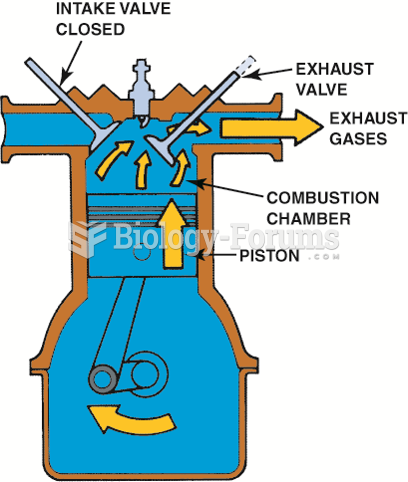|
|
|
Certain rare plants containing cyanide include apricot pits and a type of potato called cassava. Fortunately, only chronic or massive ingestion of any of these plants can lead to serious poisoning.
There are 20 feet of blood vessels in each square inch of human skin.
Cytomegalovirus affects nearly the same amount of newborns every year as Down syndrome.
There are major differences in the metabolism of morphine and the illegal drug heroin. Morphine mostly produces its CNS effects through m-receptors, and at k- and d-receptors. Heroin has a slight affinity for opiate receptors. Most of its actions are due to metabolism to active metabolites (6-acetylmorphine, morphine, and morphine-6-glucuronide).
Every 10 seconds, a person in the United States goes to the emergency room complaining of head pain. About 1.2 million visits are for acute migraine attacks.
 (A) A 62-year-old patient with myxedema exhibiting marked edema of the face and a somnolent look. Th
(A) A 62-year-old patient with myxedema exhibiting marked edema of the face and a somnolent look. Th
 Compression ratio is the ratio of the total cylinder volume (when the piston is at the bottom of ...
Compression ratio is the ratio of the total cylinder volume (when the piston is at the bottom of ...





